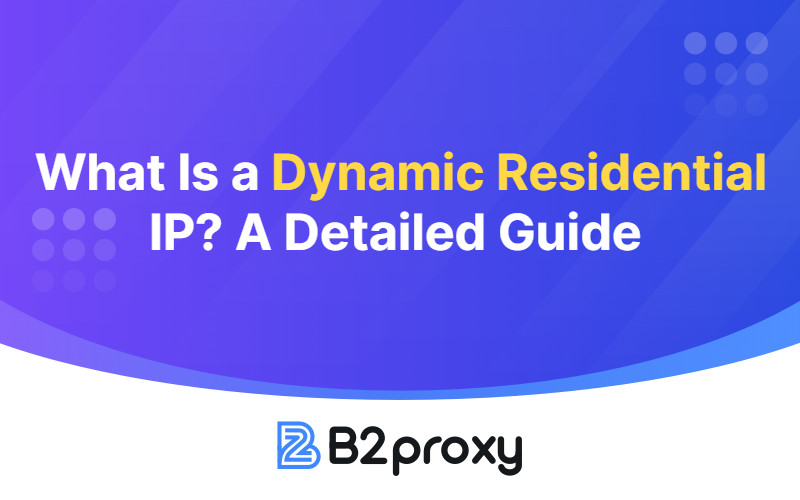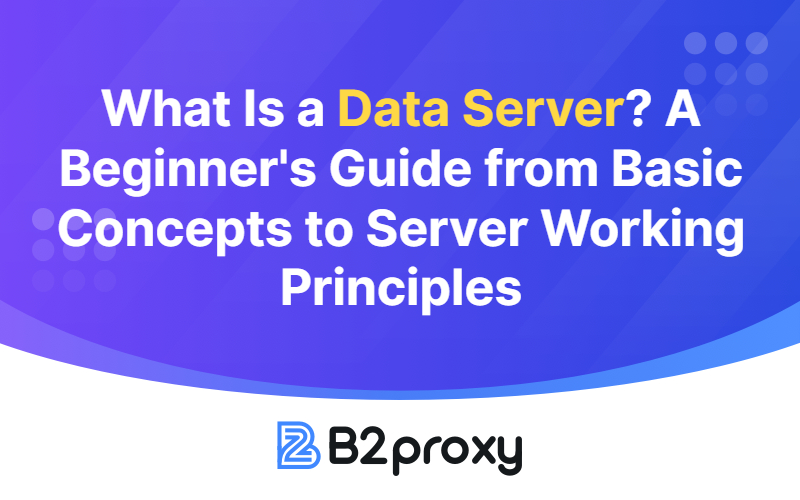2025 Best IP Proxy Services for Cybersecurity Monitoring: A Comprehensive Comparison
 October 29.2025
October 29.2025

<p>Among various cybersecurity technologies, <a href="https://www.b2proxy.com/product/unlimited-proxies" rel="noopener noreferrer" target="_blank">anonymous proxy</a> is widely regarded as a key tool for protecting data privacy and preventing information tracking. By masking real IP addresses and encrypting network traffic, it provides a secure channel for security monitoring, threat detection, and vulnerability assessment. As the proxy market continues to evolve in 2025, more providers are introducing security-optimized solutions with significant improvements in performance and anonymity. This article compares leading proxy services across three key dimensions to help users select the most suitable option.</p><p> </p><p>1. <strong>Performance and Node Quality</strong></p><p>For cybersecurity monitoring, performance is paramount—especially when conducting real-time traffic analysis or large-scale vulnerability scanning. International proxy services generally feature broader global node coverage and intelligent routing systems that maintain high-speed, low-latency connections across multiple regions. Domestic proxy providers, meanwhile, deliver superior performance within Asia, with optimized routes that enable rapid and stable access for short-term, high-frequency monitoring tasks. Premium services also incorporate automated IP rotation and load balancing to ensure reliability even under heavy data workloads.</p><p> </p><p>2. <strong>Security Mechanisms and Anonymity Protection</strong></p><p>Security monitoring often requires data collection or testing without revealing the user’s identity, making anonymity and encryption crucial. Advanced services employ multi-hop encryption and traffic obfuscation technologies to prevent tracking or detection by target systems. International providers tend to lead in encryption standardization and compliance, while domestic vendors focus on advanced anti-detection algorithms and dynamic IP pools to strengthen stealth and resilience. For teams involved in threat intelligence, penetration testing, or security auditing, choosing a proxy with strong encryption and automatic IP rotation is vital for both effectiveness and safety.</p><p> </p><p>3. <strong>Cost Structure and Technical Support</strong></p><p>Pricing and service models vary widely across the industry. Domestic providers typically offer flexible billing—such as pay-per-use, hourly, or monthly plans—making them suitable for small or temporary security projects. International services, by contrast, often use annual subscriptions with higher bandwidth limits, ideal for long-term, continuous monitoring. On the support side, domestic companies usually provide faster response times and local-language assistance, while international providers excel in system automation and detailed technical documentation. The right choice depends on balancing budget, performance, and operational scale.</p><p> </p><p><strong>Conclusion</strong></p><p>In 2025, cybersecurity monitoring demands IP proxy services that deliver both speed and privacy. Selecting the right provider can greatly enhance data collection efficiency while minimizing detection risks. The most competitive options will combine global coverage, robust encryption, and high network stability. To explore detailed comparisons and the latest industry rankings, users can refer to <a href="https://www.b2proxy.com/product/unlimited-proxies" rel="noopener noreferrer" target="_blank">proxy server site</a> for updated proxy resources and expert evaluations.</p>
You might also enjoy

What Is a Dynamic Residential IP? A Detailed Guide to Cross-Border E-commerce Account Isolation and Risk Control Solutions
Breaks down dynamic residential IPs, highlighting their role in account isolation, risk control, and building secure cross-border e-commerce systems.
February 27.2026
How to Access TorrentGalaxy Stably? 2026 Latest Working Links and Proxy Solutions Explained
A practical 2026 guide to accessing TorrentGalaxy reliably, explaining domain shifts, ISP restrictions, proxy methods, and security considerations.
February 27.2026
What Is a Data Server? A Beginner's Guide from Basic Concepts to Server Working Principles
Beginner's guide to data servers, covering core concepts, working principles, architecture, stability factors, and future cloud-driven trends.
February 26.2026







